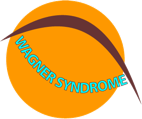Switzerland
Hans Wagner (Zürich) was the first to describe (13) family members with the symptoms of this hereditary vitreoretinal dystrophy in 1938. Boehringer et al observed an additional 10 family members in 1960, and Ricci saw 5 people more in 1961. Jansen (Dutch pedigree) suggested to rename the syndrome after Hans Wagner as he saw in his Dutch patients more symptoms than that of the vitreous and retina. In 1995 Graemiger and all published an article about the original pedigree with 28 affected people. The underlying data of this research are no longer available.
Irene Maumenee (University of Illinois in Chicago, USA) did some research on this pedigree (1982).
At this time there are two physicians at the University of Zürich (Institute of Medical Genetics / University Hospital Eye Clinic) doing further research on Wagner syndrome.
Barbara Kloeckener-Gruissem, kloeckener@medgen.unizh.ch
PhD
Christoph Amstutz, christoph.amstutz@usz.ch
MD, PhD
The Netherlands
In the Netherlands there was / is a large family (39 affected members) with Wagner syndrome, first described by LLMA Jansen in 1966. The research was done in the University Medical Center in Nijmegen. In 2006 an article about the Versican gene was published. In this publication there was also a Chinese family involved, that lives in the Netherlands.
Mauk Tilanus, m.tilanus@ohk.umcn.nl
MD PhD, surgical retina
Carel Hoyng, UMC Nijmegen
MD PhD, medical retina, researcher hereditary retinal dystrophies
France
A family of 20 affected members was described by Zech et al in 1999.
The research was done at the Université Claude Bernard, Lyon.
Jean Christophe Zech, zech@9online.fr
MD PhD
Japan
A family of 11 affected members was described in an article in 2005 about the gene that causes Wagner syndrome.
The research was done in the University of Tokushima
Hiroshi Shiota, shiota@clin.med.tokushima-u.ac.jp
MD PhD
Great-Britain
Sarah Meredith (department of Pathology) and Martin Snead (Vitreoretinal Service) both from Cambridge University Hospitals et al described 2 patients in 2007 with Wagner syndrome.
Graeme Black and Rahat Perveen in Manchester are studying / have studied Wagner syndrome too. Apart from British patients they studied also the Dutch pedigree.
Martin Snead, mps34@cam.ac.uk
MA MD
We are in contact with some British patients, Aberdeen, Scotland. We going to ask them for names of their physician(s). In Cardiff, Wales some research was done in a family with Wagner or ERVR (Exclusion of COL2A as a candidate gene in a family with Wagner-Stickler syndrome, Fryer et all, 1990). They both seem non-Stickler, but we have to verify that.
Belgium
We are in contact with a Belgium patient. We have asked her about her doctor.
where are they?

Publications you can find in the research section of this website.
page last modified June 26th 2009
Wagner syndrome